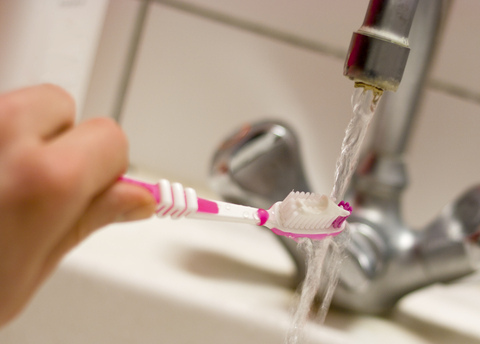April 22nd, 2020

The idea for Earth Day was the brainchild of Gaylord Nelson, a senator from Wisconsin. He envisioned an Earth Day that would be a kind of environmental teach-in. The first Earth Day celebration took place on April 22, 1970, and a surprising 20 million people participated on that day. Ultimately, it became the largest organized celebration in US history.
Earth Day Over the Years
Over the years, the recognition of the day, and the number of people celebrating it all over the world, turned Earth Day into an international celebration. Because it is celebrated throughout the world, it is not only the largest international environmental observation, but it is also more widely celebrated than any other environmental event in the world. Today, Earth Day is celebrated in 175 countries where over 500 million people participate in celebrations.
The Earth Day Movement
The Earth Day movement is credited with developing the idea that people should “think green”. It encouraged congress to enact laws, including one that resulted in the creation of the Environmental Protection Agency. It also inspired the passage of the Endangered Species Act.
The Five R's and Their Importance
- Reduce – Reduce by avoiding unnecessary purchases. Reduce your use of materials that wind up in landfills. Reduce the use of chemicals around your house. Reduce your use of disposable bags, plates, cups, eating utensils, and batteries.
- Reuse – Instead of using plastic bags for your groceries or purchases, bring your own reusable bags. When you go to buy coffee at Starbucks, take a travel mug so you don't have to get your coffee in a disposable paper cup. Instead of storing food in disposable refrigerator containers, buy containers that can be washed and reused. Don't use regular batteries. Whenever possible, opt for rechargeable batteries that you can reuse.
- Recycle – Most cities offer a recycling program to collect used bottles, cans, and newspapers. Recycling includes collecting recyclable materials that would otherwise be considered waste, sorting and processing recyclables into raw materials such as fibers and manufacturing raw materials into new products.
- Re-buy – Make an effort to purchase things that are made through recycling. When purchasing furniture, look for items that are made from reclaimed wood. When buying paper for kids school work, computer printer paper, holiday cards, or anything else, make a point of purchasing recycled paper products. Instead of buying clothing at full retail price, shop for second hand clothing. You will save a lot of money by doing so!
- Rethink – Rethink the way you do things so that you do them in an eco-conscious way at all times. Instead of driving to work alone, consider taking the bus or going in a carpool. Walk or ride your bike when you're only going a short distance. Plan your shopping trips and errand runs so that you can do everything on one day, and do it in a way where you can save time and gas.
Other ways to "think green" include growing your own food, composting yard waste and food scraps, or by participating in local recycling programs. Join a group like Freecycle so you can share your unneeded and unwanted possessions with people who can use them. Likewise, you'll be able to get things you need or want for free.
Earth Day teaches people that the planet belongs to everyone, so everyone is equally responsible for protecting it. Although Earth Day is an environmental celebration, our team at Haley Dental wants to remind you that you don't have to wait until then to make changes that will allow you and your family to live a greener life.
Happy Earth Day from the team at Haley Dental.
April 15th, 2020

You may have heard talk about the germs that can reside on your toothbrush and thought, “really?”
It’s true—there are several kinds of bacteria that can lurk on the bristles of your toothbrush, including streptococci, staphylococci, Herpes Simplex I, and the Influenza virus. To protect your toothbrush from bacteria, Dr. Richard Haley and our team want you to consider the following three tips:
- Wash your hands before and after brushing.
- Allow the brush to air dry after each use, as harmful bacteria dies after being exposed to oxygen. It is best to disinfect your toothbrush weekly and allow it to dry in between use. Store the toothbrush in an upright position to allow water to drain and dry faster
- Replace your toothbrush every three to four months, or after being ill. Worn bristles are less effective in properly cleaning your teeth, and can actually be damaging to teeth if used too long!
We hope these tips help! Feel free to give us a call at our Carrizo Springs office or ask us on Facebook if you have any questions!
April 8th, 2020

When’s the last time you gave your toothbrush any serious thought? Sure, you use it every day (and ideally twice), and you know that with a dollop of toothpaste it waxes up your pearly whites nicely, not to mention preventing bacteria, plaque, and inflammation.
But what are the things you should never do with your toothbrush? Here’s a brush-up on five toothbrush no-nos, from Haley Dental.
1. If you have your toothbrush too close to the toilet, you’re brushing your teeth with what’s in your toilet. In other words, keep your toothbrush stored as far from the toilet as possible.
2. The average toothbrush harbors ten million microbes. Many families keep their toothbrushes jammed together in a cup holder on the bathroom sink, but this can lead to cross-contamination. Family members’ toothbrushes should be kept an inch apart. Don’t worry; they won’t take it personally.
3. Don’t delay replacing your toothbrush. It’s best to purchase a new one every three to four months, but by all means get one sooner if the bristles are broken down because of your frequent and vigorous brushing. If you have a cold or the flu, replace your toothbrush after you recover.
4. Store your toothbrush out of the reach of toddlers. The last thing you want is for your toothbrush to be chewed like a pacifier, dipped in toilet water, or used to probe the dusty heating ducts.
5. Sharing is caring, right? Your parents probably taught you the importance of sharing back when you were, well, dipping their improperly stored toothbrushes in toilet water. But here’s the thing: As important as sharing is, there are some things you just don’t share, and your toothbrush is one of them.
April 1st, 2020

Happy Oral Cancer Awareness Month! We know oral cancer can be kind of a scary topic, but it’s worth using this opportunity to learn about the disease and spread knowledge so everyone becomes more aware. The more we know, the better we can work to prevent it!
Oral cancer is exactly what it sounds like: cancer that occurs anywhere in the mouth. It could occur on the tongue, the lips, the gums, the tongue, inside the cheek, or in the roof or floor of the mouth. Every year, more than 8,000 people die from oral cancer. It’s a truly deadly disease.
The reason oral cancer scores a higher death rate than other common cancers such as testicular cancer, Hodgkin’s disease, thyroid cancer, cervical cancer, or even skin cancer, is because it often goes undetected until it's become too advanced and has spread to another part of the body.
So what causes this devastating disease? There is no clear answer, but some potential causes have been identified. By being aware of these, we can be alert and promote prevention of this illness:
- Age: Most patients who develop oral cancer are above the age of 40. If you’re over 40, make sure your doctor checks for signs of oral cancer and that you stay on your dental hygiene regimen.
- Tobacco: Excessive tobacco use, whether in the form of cigarette smoking or tobacco chewing, can be a substantial contributor and cause of oral cancer. So that’s another reason, among many, you should avoid tobacco.
- Alcohol: Excessive alcohol consumption can put you at risk because alcohol converts into a chemical called acetaldehyde, which damages the body’s DNA and blocks cells from repairing the damage. When paired with tobacco, the dehydrating effects of alcohol make it even easier for tobacco to infiltrate mouth tissue.
- Sun exposure: Your lips need SPF, too! Repeated sun exposure increases your risk of contracting cancer on your lips, especially the lower lip.
- Diet: Not getting all the nutrients you need, from vegetables and fruits for instance, can weaken your immune system and make you more vulnerable to the disease.
Obviously, many of these causes relate to lifestyle choices, which we have control over. It's all about balance, being aware, and making small tweaks to our habits if we need to.
If you’re concerned that you may be at risk for oral cancer, give us a call to talk about a screening. And if you’ve been putting off a visit to our Carrizo Springs office, now is an excellent time to schedule one. Regular visits to the dentist can be the first line of defense against oral cancer!




